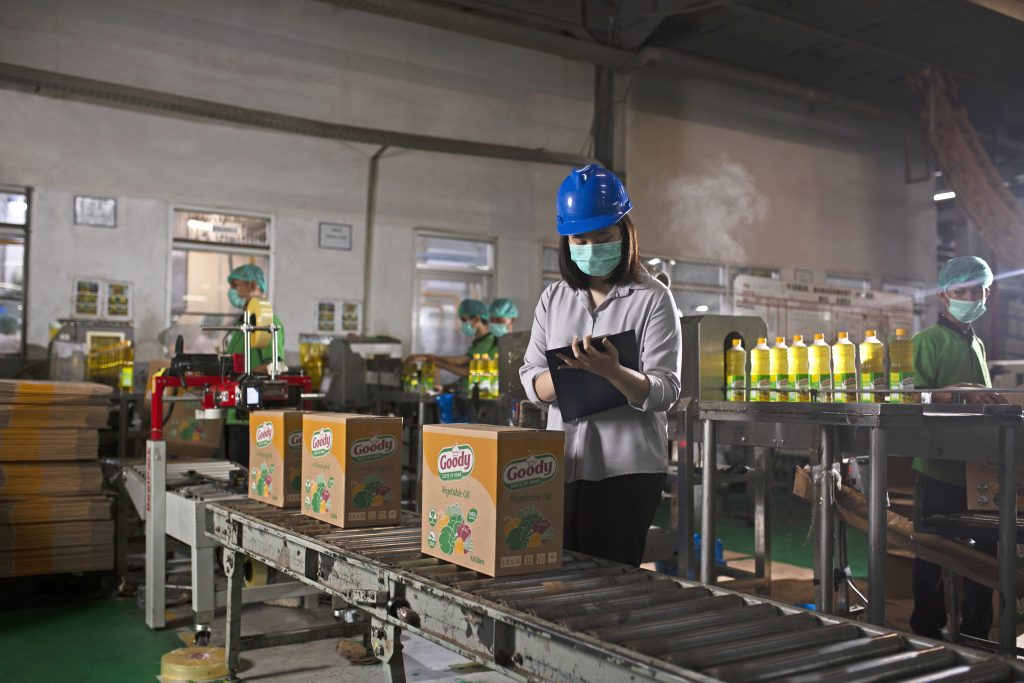Promoting health in Indonesia is a social goal. Hence, responsibility for it has to be shared among all concerned sectors. One of the keys to sustaining life and promoting good health is ensuring access to sufficient amounts of safe and nutritious food.
This year’s World Food Safety Day theme, “safer food, better health”, highlights the importance of providing safe, nutritional food to ensure human health and well-being. How do we define food safety? And why is food safety important?
Food safety definition
Food safety refers to the practices observed during food handling, processing, and distribution to ensure that contaminants causing foodborne illnesses do not exist. The concern for the food production life cycle starts from agriculture to packaging of finished products and delivery to the consumer’s table.
These contaminations can come from biological, physical, chemical and radiological hazards. Without the proper management and control of food safety, issues such as foodborne diseases are more likely to occur.
Why is food safety important?
In 2018, the United Nations General Assembly proclaimed that every June 7 would be World Food safety Day to recognise the global burden of foodborne diseases that affect individuals of all ages, especially children under 5-years-old and people living on a low income.
The World Health Assembly further passed a resolution to strengthen global efforts for food safety in 2020 to reduce the burden of foodborne disease. Recent research conducted by the Department of Food Science and Technology, Faculty of Agricultural Technology, Bogor Agricultural University (IPB) shows that more than 200 diseases can be transmitted through food.
This leads to a high number of food poisoning cases in Indonesia, which is surprisingly dominated by household cooking, up to almost 46 per cent. The study also found that most outbreaks were caused by improper food processing. The contributing factors can be food coming from contaminated sources and equipment, insufficient cooking, inadequate worker hygiene, and even incorrect storage temperatures.
Unfortunately, these facts badly affect Indonesia’s target to reduce the country’s stunting rate to 14 per cent in 2024, or below 680,000 cases per year. Stunting is defined as having a height-for-age more than two standard deviations below the median height-for-age of the reference population.
The Lancet’s series on maternal and child nutrition found that stunting is the most critical determinant of human capital and economic growth. Literature reviews and empirical studies assert that measures to curb stunting should focus on supplying quality infrastructure, health, and education while improving access of vulnerable populations to nutritious food and social services.
Hence, food safety will also support national economies, trade and tourism and stimulate sustainable development.
How to ensure food safety at home
As a consumer, we can also do preventive measures for food illnesses by following the four basic steps for food safety:
- Clean: Always wash your food, hands, counters, and cooking tools.
- Wash your hands in soapy water for at least 20 seconds before and after touching foods.
- After working with each food item, wash cutting boards, forks, dishes, knives, spoons, and countertops with soapy water.
- Rinse fruits and veggies but do not wash meat, fish, eggs, or poultry because the water splashes from the sink can spread bacteria.
- Clean the lids on canned goods before opening.
- Separate: Keep raw foods to themselves to prevent the spreading of germs.
- Keep raw meat, seafood, eggs, and poultry from other foods in your shopping cart, bags, and fridge.
- Do not reuse marinades used on raw foods unless you boil them first.
- Use a special plate or cutting board for raw foods.
- Cook: Heat kills germs.
- Remembers these safe temperatures: beef, pork, lamb and fish at 63 C. Ground beef, pork, and lamb at 71 C. Turkey, chicken, and duck at 74 C.
- Use a food thermometer to make sure that food is done.
- Chill: Put food in the fridge right away.
- Follow the 2-Hour Rule, put foods in the fridge or freezer within 2 hours after cooking or buying from the store.
- Never thaw food by simply taking it out of the fridge. Instead, thaw food in the refrigerator, under cold water, or in the microwave.
- Marinate foods in the fridge.

We all have a role to play. Whether we frow, process, transport, store, sell, buy, or serve food, food safety is in our hands. And it is everyone’s task to ensure that foods stay safe at every stage of the food chain, from production to harvest, processing, storage, distribution, and preparation and consumption.
As a fully integrated global palm oil producer, processor, and exporter, Apical always ensures that we produce fresh, quality palm oil products through CPO (Crude Palm Oil) processing in our international certified refineries.
CPO is a versatile vegetable oil that can be processed into various edible products such as cooking oil, margarine, shortening, and speciality facts. Our palm oil products are Hazard Analysis Critical Control Point (HACCP) certified for food safety and halal and kosher certified.
We also adhere to PORAM’s (Palm Oil Refiners Association of Malaysia) standards for PPO and can create our product specifications according to customers’ requirements. We take food safety procedures seriously because we realise that if we all work together and play our part seriously, we can achieve safer food for better health.
Happy World Food Safety Day!

